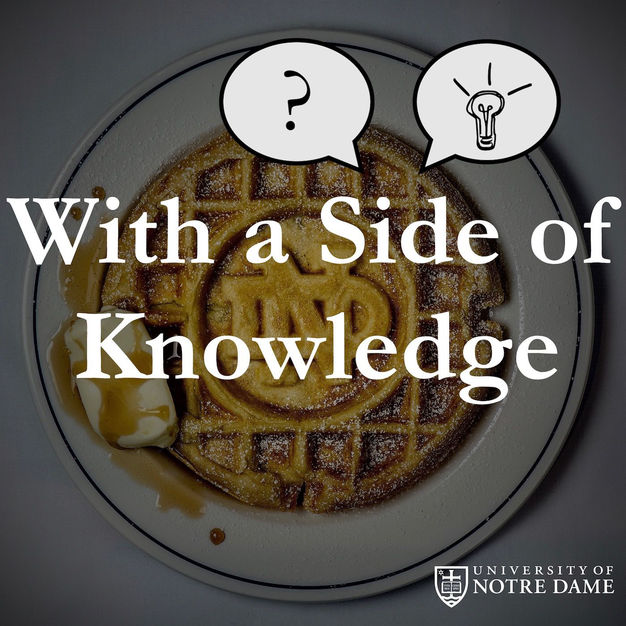
With a Side of Knowledge
University of Notre Dame
A college campus is a destination for all kinds of interesting people, representing all kinds of research specialties and fields of expertise. With a Side of Knowledge, which is produced at the University of Notre Dame, invites some of these folks out to brunch—yes, we said brunch—for an informal, 30-minute conversation about their work. Some guests are members of the Notre Dame faculty, but many are visitors from elsewhere who have come to our campus to do anything from give a lecture or performance to participate in a fellowship program.
- 2 minutes 9 secondsThank You
Episode Transcript
From the University of Notre Dame, this is With a Side of Knowledge. I’m your host, Ted Fox.
I’ve been saying that for 4+ seasons and more than 65 episodes now, and that’s not counting bonus episodes and some other fun stuff we’ve gotten to do. And because we’ve spent all that time together, I wanted to let you know some things are changing.
I’m moving to a new position at Notre Dame, and while I initially thought it might make sense to try and move the show with me, I’ve come to realize that wouldn’t quite work.
Thank you to Cidni Sanders, the University’s executive director of academic communications, for allowing me to think through this and being open to even considering it in the first place. Cidni and I haven’t worked together long, but she has been beyond generous with me.
The good news, at least if you’ve enjoyed listening over the years, is that the show isn’t going away. All the episodes we’ve released will stay in our feed and on our website at withasideofpod.nd.edu while my colleagues in the Office of the Provost consider what the next chapter of this endeavor might look like.
So, as we bring this era of With a Side of Knowledge to a close, I’d be remiss if I didn’t acknowledge a few people.
I want to thank Pat Gibbons, who gave me the freedom and support to create this podcast, as well as all my friends in the provost’s office who have listened to me talk about it—and believe me, it’s been ad nauseum—these last few years.
I want to thank all of our guests, who have provided us with so many amazing conversations and thoughtful insights along with a healthy dose of laughter.
And I especially want to thank all of you, the listeners, for hitting play. None of us has enough time in our days, and the fact that you’ve chosen to spend some of it here is something that I will always be grateful for.
Making this podcast really has been a privilege—it’s one of my favorite things I’ve done in over 17 years of working at this University—so I hope you’ll stick around and see what comes next.
Thanks again.8 December 2021, 8:00 pm - 33 minutes 58 secondsOn ‘One Week in America’—Patrick Parr, Author
We started out as the show that invited scholars, makers, and professionals to brunch for informal conversations about their work—but last season, we needed to record remotely. This year we’re excited to be able to bring back in-person interviews while still taking advantage of the flexibility afforded by our remote setup.
Patrick Parr is the author of two books of nonfiction, both with Chicago Review Press. His first, The Seminarian: Martin Luther King Jr. Comes of Age, was published in 2018 and described by The Wall Street Journal as “original, much-needed and even stirring.”
Patrick joined host Ted Fox via Zoom to talk about book No. 2, which was released earlier this year. Titled One Week in America: The 1968 Notre Dame Literary Festival and a Changing Nation, its appeal to us, a podcast produced at the university, was immediate. But Patrick doesn’t just chronicle what took place on the Notre Dame campus from Sunday, March 31, through Saturday, April 6, 1968, a story that features an almost unimaginably star-studded lineup of literary and political figures—brought to campus by a group of students, no less—and that included a red-carpet movie premiere in the most unlikely of venues.
No, the book doesn’t stop there because the festival didn’t exist in a vacuum, and during this particular week in America, that truth became evident in ways prominent and painful.
Patrick’s own story of how he came to research the 1968 Notre Dame Literary Festival starts where a lot of good writing does: with a question that comes to you in the middle of the night.
LINKS- Patrick’s Book: One Week in America: The 1968 Notre Dame Literary Festival and a Changing Nation
- Notre Dame Magazine Story: Echoes: Sophomore Literary Festival
- Episode Transcript
18 November 2021, 5:00 am - 27 minutes 49 secondsOn Foreign Policy and Seeing the Big Picture—Elizabeth Shakman Hurd, Northwestern University
We started out as the show that invited scholars, makers, and professionals to brunch for informal conversations about their work—but last season, we needed to record remotely. This year we’re excited to be able to bring back in-person interviews while still taking advantage of the flexibility afforded by our remote setup.
Elizabeth Shakman Hurd is a professor of political science and religious studies and the Crown Chair in Middle East Studies at Northwestern University, where she co-directs the Global Religion and Politics Research Group. The author or co-editor of six books, she specializes in religion in U.S. foreign and immigration policy, the global politics of secularism and religious freedom, religion and the American border, and relations between the U.S., Europe, Turkey, and Iran.
Elizabeth visited campus as part of a series of policy discussions marking the 20th anniversary of September 11th presented by Notre Dame’s Keough School of Global Affairs and Ansari Institute for Global Engagement With Religion. Her keynote, the second event in the three-part series, focused on what she calls the “religion-heavy” foreign policy of the United States’ War on Terror.
With a patio outside Notre Dame’s Morris Inn as our backdrop, Elizabeth talked with us about some of the issues she addressed in her presentation at the Keough School and why she believes the government should rethink the emphasis it places on religion when acting on the world stage. Her recommendations there draw from testimony she gave to the House Foreign Affairs Committee earlier this year and, it’s worth noting, do not suggest that religion is unimportant, either.
But before we got to where we are now, we started with a little bit of history.
LINKS- Elizabeth’s New Book: Theologies of American Exceptionalism
- Episode Transcript
28 October 2021, 4:00 am - 31 minutes 39 secondsOn Museum and Library Discovery—Mikala Narlock and Erika Hosselkus, Notre Dame
We started out as the show that invited scholars, makers, and professionals to brunch for informal conversations about their work—but last season, we needed to record remotely. This year we’re excited to be able to bring back in-person interviews while still taking advantage of the flexibility afforded by our remote setup.
This episode is a little different from what we usually do, in that the focus isn’t one person’s work but rather a new tool designed to enhance knowledge access for everyone. It’s called Marble, and it’s a collaboration between Notre Dame’s Hesburgh Libraries and Snite Museum of Art developed with a grant from the Andrew W. Mellon Foundation. Marble is an online portal that lets users all over the world view and learn about materials from the Snite Museum, Rare Books & Special Collections, and the University Archives in a way that is so cool it made us want to do a show literally about a website.
And to cover everything that makes Marble special, we tried something else different: Not one but two interviews, with two people who have played distinct roles in its creation.
First you’ll hear from Mikala Narlock, digital collections librarian at the Hesburgh Libraries, who analyzed how content would be uploaded to Marble. Mikala and host Ted Fox talked on a windy day outside the library about the user experience—the types of artifacts available in the platform, what shows up on your screen when you run a search, why this is different than what existed before, and importantly, how anyone can use it, regardless of whether they have an affiliation with Notre Dame.
After Mikala, it’s Erika Hosselkus, a special collections curator and Latin American studies librarian at the Hesburgh Libraries who led the content team for the Marble project. Erika and Ted met up in Rare Books and Special Collections at the library, where they talked about how the materials Marble gives people access to can inform teaching, research, and just our collective consciousness, not to mention how digital discovery can actually serve as an important gateway to the physical collections themselves.
LINKS- Marble website: marble.nd.edu
- Episode Transcript
14 October 2021, 4:00 am - 30 minutes 19 secondsOn Medicine, Vietnam, and War Stories—Mike Collins, M.D. and Author
We started out as the show that invited scholars, makers, and professionals to brunch for informal conversations about their work—but last season, we needed to record remotely. This year we’re excited to be able to bring back in-person interviews while still taking advantage of the flexibility afforded by our remote setup.
Mike Collins graduated from Notre Dame in 1971 and spent several years working as a truck driver, cab driver, construction laborer, dockworker, and freelance journalist before pursuing medicine. After receiving his M.D. from Loyola University Chicago Stritch School of Medicine, he spent five years in residency at the Mayo Clinic, ultimately serving as chief resident in orthopedic surgery and embarking on a surgical career that has spanned several decades.
Mike has written two memoirs about his journey as a physician: Hot Lights, Cold Steel, recounting his time as a surgical resident, and Blue Collar, Blue Scrubs, about his days as a laborer trying to get into medical school. Since the publication of Hot Lights, Cold Steel in 2005, he has lectured around the country, and the books are on the required or recommended reading list for many medical schools and pre-medical programs.
We had the chance to talk to Mike about his latest book, a novel titled All Bleeding Stops. It’s the story of Dr. Matthew Barrett, who is sent to Vietnam as a combat surgeon shortly after completing his residency. While fiction is a departure from Mike’s previous books, he draws heavily on his experience in the operating room to unfold a story that he hopes will bring attention, both within the medical community and beyond, to the very real mental health issues encountered by physicians routinely asked to navigate the line between life and death.
Setting the story amidst the impossible circumstances that faced those serving in Vietnam makes that point in a particularly affecting way.
LINKS- Mike’s Novel: All Bleeding Stops
- Episode Transcript
30 September 2021, 4:00 am - 1 minute 10 secondsSeason 5 Trailer
This is a trailer for season 5 of With a Side of Knowledge—which we’re publishing a day after said season launched.
That’s how the pros do it, right?
--
FULL EPISODE TEXT
Hey, my name’s Ted Fox, and I’m the host of With a Side of Knowledge, a podcast produced at the University of Notre Dame.
We started out as the show that invited scholars, makers, and professionals to brunch for 30-minute, informal conversations about their work—until season 4, when the pandemic prompted us to record everything remotely. Now, with season 5, we’re excited to be able to bring back in-person interviews while still taking advantage of the flexibility afforded by our remote setup. Guests include members of the Notre Dame faculty, visitors who have come to campus to do anything from give a lecture or performance to participate in a fellowship program, and other interesting people we’ve plain cold-emailed and asked to come on the show.
New episodes are released every other Thursday. Our website is withasideofpod.nd.edu, and you can find us on Twitter and Instagram. In both spots, we are @withasideofpod.
Thank you for listening. Hopefully this will be the first of many times.17 September 2021, 3:00 pm - 36 minutes 46 secondsOn Baseball and Critiquing Things You Love—Katherine Walden, Notre Dame
We started out as the show that invited scholars, makers, and professionals to brunch for informal conversations about their work—but last season, we needed to record remotely. This year we’re excited to be able to bring back in-person interviews while still taking advantage of the flexibility afforded by our remote setup.
But whether we’re literally sitting down with a guest or talking with them virtually from that trusty old walk-in closet, we hope you’ll find that you’re glad you stopped by.
To start season 5, host Ted Fox grabbed a cup of coffee and headed to the courtyard outside Notre Dame’s Hesburgh Library, right beneath the famous “Word of Life” mural on the building’s south side. More popularly known as Touchdown Jesus, the mural is a fitting backdrop for a conversation about sports, which is what Katherine Walden and Ted met to talk about—albeit baseball rather than football.
Katherine is an assistant teaching professor of American studies at Notre Dame and an affiliated faculty member of the Notre Dame Technology Ethics Center. Her research employs data analysis, visualization, and interactive digital mapping to illustrate the scale and scope of Minor League Baseball labor, as well as the historical forces and labor structures that shape Minor League players’ working conditions.
Why Minor League Baseball? After all, the vast majority of baseball fans’ attention gets devoted to the likes of the Chicago Cubs, St. Louis Cardinals, Boston Red Sox, and the other 27 clubs that make up Major League Baseball.
But as Katherine points out, 90 percent of professional baseball players are actually Minor Leaguers, who for the most part grind out their days in relative anonymity. Her work has grown out of asking: What happens if we put that 90 percent at the center?
The answers give all of us who love our national pastime a lot to think about.
LINKS16 September 2021, 4:00 am - 28 minutes 8 secondsOn Fashion History and the Human Story—Kimberly Chrisman-Campbell, Author
Before the pandemic, we were the show that invited scholars, makers, and professionals out to brunch for informal conversations about their work, and we look forward to being that show again one day. But for now, we’re recording remotely to maintain physical distancing.
It’s still a pretty fantastic job.
This is our season 4 finale, and we’re taking a look back—not at the history of this podcast, but at the history of fashion, and our guide is a great one.
Kimberly Chrisman-Campbell is an award-winning fashion historian, curator, and journalist and a 2020–21 National Endowment for the Humanities Public Scholar. Her work has appeared in The Atlantic, The Washington Post, Politico, and The Wall Street Journal, and she is the author of three books, including Worn on This Day: The Clothes That Made History, which had its origins as a Twitter account and was published in 2019 by Running Press.
While we had a lot of questions for her about Worn on This Day—how she found an article of clothing tied to every day of the year, what kind of history this approach allowed her to write, why she picked what she did for the September 11th entry—we also talked about the distinctive role fashion plays in the human story.
We asked Kimberly about her NEH project, as well, and learned a little bit about American fashion designer Chester Weinberg, whom she’s hoping to reintroduce to a large audience. And then there was her most recent book, The Way We Wed: A Global History of Wedding Fashion, a sequel of sorts to Worn on This Day.
Fun fact there: The white wedding dress? Not as traditional as you might think.
LINKS- Kimberly’s Books: Worn on This Day: The Clothes That Made History and The Way We Wed: A Global History of Wedding Fashion
- Worn on This Day Twitter: @WornOnThisDay
- Episode Transcript
29 April 2021, 4:00 am - 35 minutes 35 secondsOn 3D Printing and the Rise of Industry 4.0—C. Fred Higgs III, Rice University
Before the pandemic, we were the show that invited scholars, makers, and professionals out to brunch for informal conversations about their work, and we look forward to being that show again one day. But for now, we’re recording remotely to maintain physical distancing.
It’s still a pretty fantastic job.
Fred Higgs is John and Ann Doerr Professor of Mechanical Engineering at Rice University, where he is also vice provost for academic affairs and director of the Rice Center for Engineering Leadership. A past winner of a National Science Foundation CAREER Young Investigator Award and a fellow of the American Society of Mechanical Engineers, Fred is the founder and director of the Particle Flow and Tribology Lab at Rice.
We would try to define what tribology is, but Ted, our host, kind of got it wrong in the interview, and there’s no need to embarrass ourselves twice. The good news is Fred is awesome at explaining things in terms even a non-engineer can understand.
Back in March, we had the opportunity to watch him give an Edison Lecture hosted by Notre Dame’s College of Engineering—and held virtually, of course—about some of the research they do in his lab in the area of additive manufacturing, or 3D printing. Here he and Ted talked about how 3D printing actually works, some real-world applications that illustrate why you’d do it in the first place, and whether we’ll ever be able to print three-dimensional objects as easily as we use a Xerox machine.
Before that, though, they spent some time on the rise of intelligent machines and the ensuing paradigm shift for engineers looking to bring products to market. It’s a great example of why Fred and others see ethics as a core component of engineering education.
LINKS- Fred’s Research: Particle Flow & Tribology Lab at Rice University
- Episode Transcript
15 April 2021, 4:00 am - 34 minutes 56 secondsOn “The State of Science” (Part 2)—Holden Thorp, Science Family of Journals
Before the pandemic, we were the show that invited scholars, makers, and professionals out to brunch for informal conversations about their work, and we look forward to being that show again one day. But for now, we’re recording remotely to maintain physical distancing.
It’s still a pretty fantastic job.
For the second episode in a row, we’re turning things over to a guest host for a conversation with Holden Thorp, editor-in-chief of the Science family of journals.
Talking with Holden this time is Suman Datta, who is Stinson Professor of Nanotechnology in Notre Dame’s Department of Electrical Engineering and the director of ASCENT, a microelectronics research center funded by the Semiconductor Research Corporation and the Defense Advanced Research Projects Agency. Holden and Suman spoke as part of a recent online series at Notre Dame called The State of Science. This is a condensed version of their conversation, which was recorded on March 1 and focused on the future of scientific collaboration.
Holden brings a distinct perspective to this topic. Even before taking on his current position as editor-in-chief of the six journals published by the American Association for the Advancement of Science, including the magazine Science itself, he was an intellectual leader, having served as provost and executive vice chancellor for academic affairs at Washington University in St. Louis and as the chancellor of the University of North Carolina at Chapel Hill. He is currently Rita Levi-Montalcini Distinguished University Professor at WashU, holding appointments in both chemistry and medicine.
Holden and Suman talked about everything from the need for academic collaboration that crosses disciplinary boundaries and the very real barriers to achieving it to the way geopolitical tensions hinder knowledge discovery. We started with Suman asking about the generational questions now facing the scientific community.
LINK- Listen to Our First Episode with Holden: On “The State of Science” (Part 1)
- Episode Transcript
1 April 2021, 4:00 am - 37 minutes 41 secondsOn “The State of Science” (Part 1)—Holden Thorp, Science Family of Journals
Before the pandemic, we were the show that invited scholars, makers, and professionals out to brunch for informal conversations about their work, and we look forward to being that show again one day. But for now, we’re recording remotely to maintain physical distancing.
It’s still a pretty fantastic job.
This is a special episode of the show because for the first time ever, Ted, our normal host, isn’t hosting.
He’d ask that you keep your applause to yourself.
It’s a conversation between Holden Thorp, editor-in-chief of the Science family of journals, and Marie Lynn Miranda, a professor of applied and computational mathematics and statistics at Notre Dame, the University’s Charles and Jill Fischer Provost—and as we’re sure she tells people all the time, a former guest on this podcast. Holden and Marie Lynn spoke as part of a recent online series at Notre Dame called The State of Science. This is a condensed version of that conversation, which was recorded on Feb. 22 and focused on “Building the COVID-19 Knowledge Base in Real Time.”
Holden is a great person to talk with about this. Serving as the editor-in-chief of the “Science family of journals” means he leads the six journals published by the American Association for the Advancement of Science, including the magazine Science, the premier global science weekly. In addition to his role at the journals, he is Rita Levi-Montalcini Distinguished University Professor at Washington University in St. Louis, holding appointments in both chemistry and medicine. He previously served as Washington University’s provost and executive vice chancellor for academic affairs and as the chancellor of the University of North Carolina at Chapel Hill, his alma mater.
Holden is also a big jazz fan. And even with a topic as big as the pandemic and the scientific community’s response to discuss, Marie Lynn still managed to sneak in a question about jazz records.
If you enjoy their conversation—and we’re confident you will—you can watch even more at provost.nd.edu/state-of-science.
LINKS- Science Editorial: “The moment to see the poor”
- Holden’s Intro to Jazz: Spotify Playlist
- Episode Transcript
18 March 2021, 4:00 am - More Episodes? Get the App
Your feedback is valuable to us. Should you encounter any bugs, glitches, lack of functionality or other problems, please email us on [email protected] or join Moon.FM Telegram Group where you can talk directly to the dev team who are happy to answer any queries.
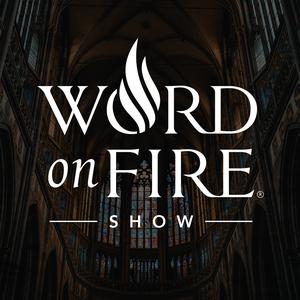 The Word on Fire Show - Catholic Faith and Culture
The Word on Fire Show - Catholic Faith and Culture
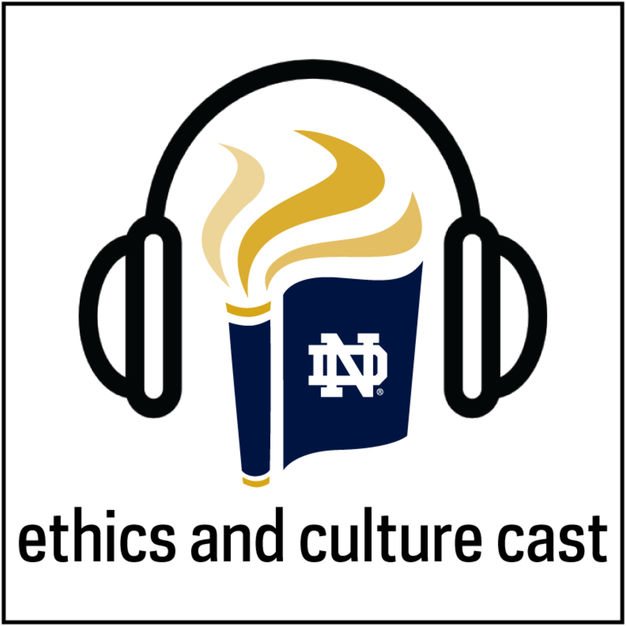 Ethics and Culture Cast
Ethics and Culture Cast
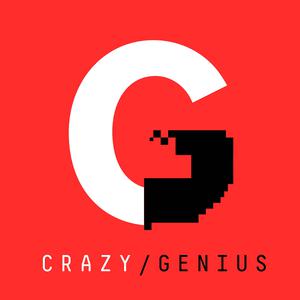 Crazy/Genius
Crazy/Genius
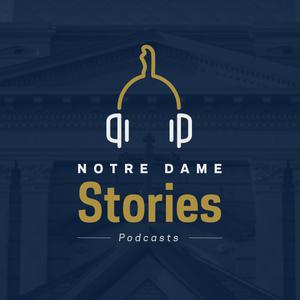 Notre Dame Stories
Notre Dame Stories
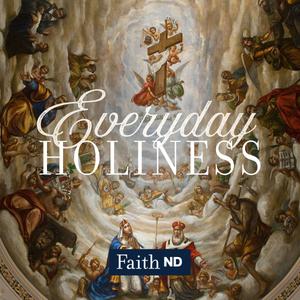 Everyday Holiness
Everyday Holiness
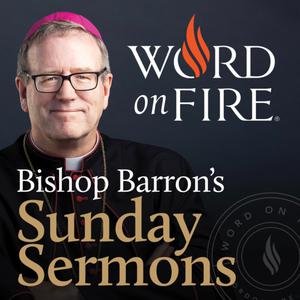 Bishop Barron’s Sunday Sermons - Catholic Preaching and Homilies
Bishop Barron’s Sunday Sermons - Catholic Preaching and Homilies